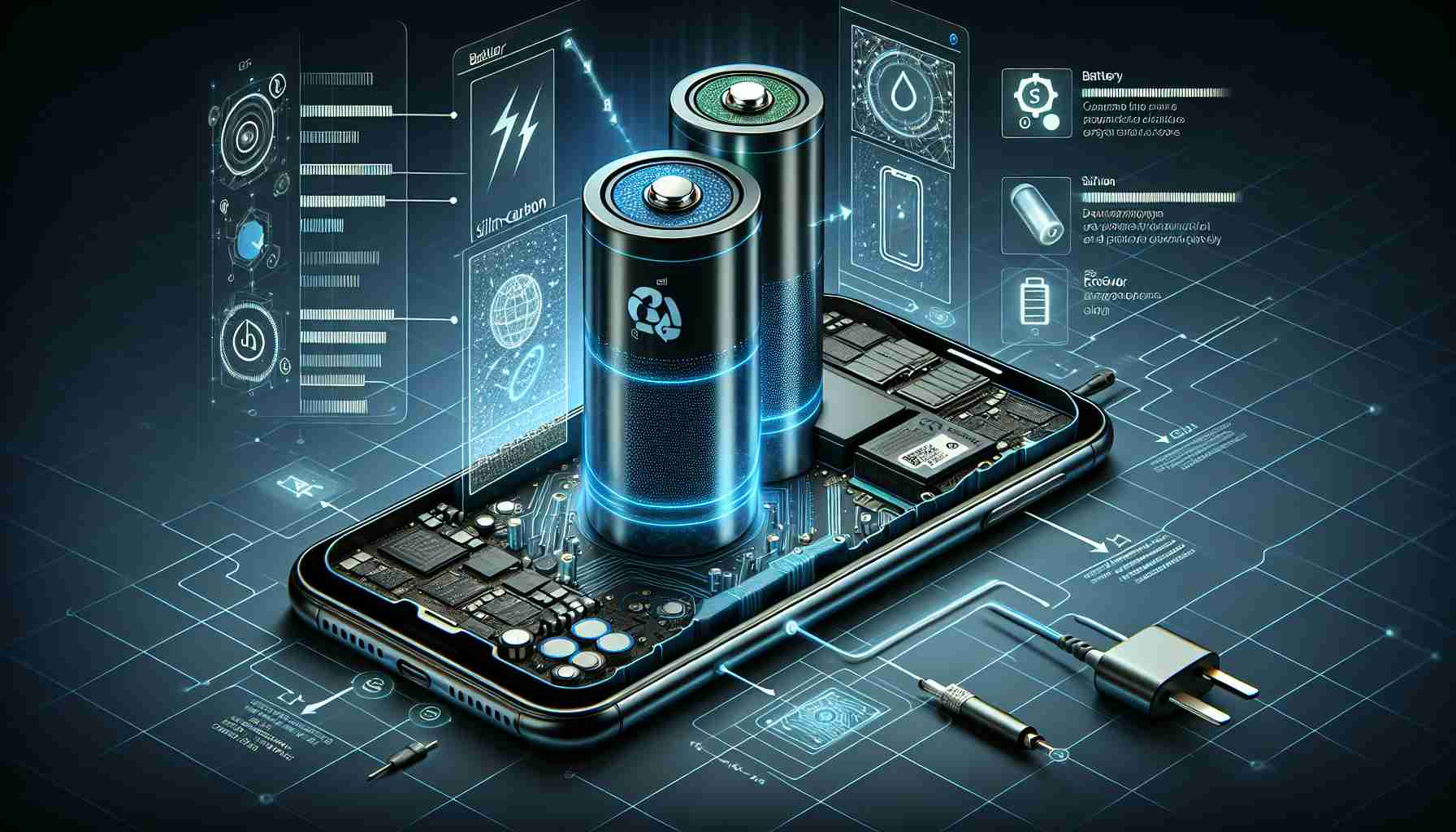Enhancing Battery Performance
Modern mobile devices prioritize battery life, with manufacturers constantly seeking innovative ways to improve energy efficiency. Newly developed silicon-carbon battery technology has emerged as a game-changer in the industry. Unlike traditional battery materials, silicon-carbon compounds offer superior energy capacity and increased cycle longevity, making them an ideal choice for compact electronic devices.
The Era of Silicon-Carbon Batteries
Silicon-carbon batteries have swiftly gained popularity among leading smartphone brands due to their high energy density and compact size. These advanced batteries provide a solution to the space constraints faced by mobile manufacturers, particularly with the increasing demand for features like multiple cameras and facial recognition technology. The integration of silicon into the negative electrode has enabled smartphones to achieve remarkable battery capacity without adding bulk to the devices.
A New Standard in Battery Technology
The adoption of silicon-carbon battery technology has redefined the standards for premium smartphones. Devices like the Xiaomi 11 Ultra have successfully entered the “5000mAh Club,” offering extended battery life while maintaining a sleek design. The innovative use of silicon compounds in battery manufacturing has become a hallmark of flagship smartphone models, setting a new benchmark in the industry.
Shaping the Future of Mobile Power
As the demand for high-performance smartphones continues to grow, the evolution of battery technology becomes paramount. The utilization of silicon-carbon batteries not only enhances energy efficiency but also ensures greater durability and cost-effectiveness. With foldable smartphones presenting a new frontier in mobile innovation, the efficiency and reliability of silicon-carbon batteries are poised to play a crucial role in shaping the future of mobile power solutions.
Embracing Innovation for Enhanced User Experience
The rapid advancements in silicon-carbon battery technology underscore a significant shift in mobile device power capabilities. By prioritizing energy efficiency and performance, manufacturers can offer users an unparalleled smartphone experience that seamlessly integrates cutting-edge technology with enduring battery life. As the industry continues to evolve, silicon-carbon batteries are set to drive the next phase of mobile device innovation, enabling devices to achieve new heights of efficiency and usability.
The Evolution and Challenges of Silicon-Carbon Battery Technology
The revolutionary advancements in silicon-carbon battery technology are reshaping the landscape of mobile device power solutions, offering enhanced energy capacity and durability. However, along with the undeniable benefits, there are key questions and challenges that arise with the adoption of this innovative battery technology.
What are the key advantages of silicon-carbon batteries?
Silicon-carbon batteries are known for their high energy density, which translates to longer battery life for mobile devices. The integration of silicon compounds in the battery manufacturing process allows for increased energy capacity without adding bulk, making them ideal for compact electronic devices.
What are the main challenges associated with silicon-carbon battery technology?
One of the primary challenges faced with silicon-carbon batteries is their tendency to experience capacity degradation over multiple charge cycles. The expansion and contraction of silicon during charging and discharging processes can lead to material degradation and affect the overall battery performance over time.
Advantages of Silicon-Carbon Batteries:
– Superior energy density and increased cycle longevity.
– Compact size ideal for space-constrained mobile devices.
– Enable extended battery life without compromising device design.
Disadvantages of Silicon-Carbon Batteries:
– Capacity degradation over multiple charge cycles.
– Potential material degradation due to silicon expansion and contraction.
– Cost implications associated with silicon integration in battery manufacturing.
While silicon-carbon battery technology represents a significant leap forward in mobile power solutions, it is crucial to address the challenges associated with these batteries to ensure long-term performance and reliability. Manufacturers are actively exploring ways to mitigate capacity degradation and enhance the overall efficiency of silicon-carbon batteries to meet the evolving demands of consumers.
As the industry continues to evolve, silicon-carbon batteries are poised to drive further innovation in mobile devices, offering users a seamless integration of cutting-edge technology and enduring battery life. The ongoing research and development efforts in the field of battery technology will play a pivotal role in shaping the future of mobile power solutions.
For further information on the latest advancements in battery technology, you can visit www.batterylife.com. Stay updated on the latest trends and innovations that are transforming the way we power our mobile devices.























